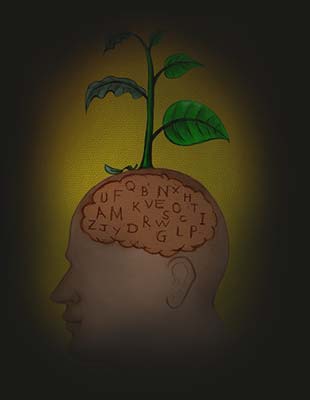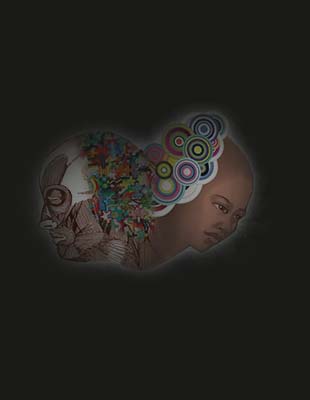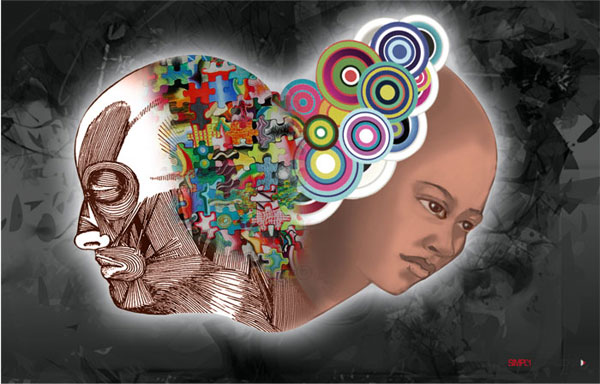



Introduction

“Just as different drugs impact different humours in the body- some stopping a disease, others ending life, so are words. Some words cause pain, others joy, some strike fear, some galvanize people into action while others, benumb and bewitch the soul with evil thoughts,” said Gorgias of Sicily. In simple terms, Gorgias implies that words and the manner in which they are spoken, impact the brain, similar to the action of medicines on the human body.
Gorgias was also a nihilist who effectively deployed contradiction to prove the true nature of thoughts, as he believed. He expounded that nothing exists in this world. If it exists, it cannot be comprehended. And, what is beyond comprehension cannot be communicated to other humans due to inherent deficiencies of the brain. Regardless of the perplexity of his thoughts, Gorgias was a much sought Sophist- or itinerant teachers who charged fees for their works, and is credited with several accomplishments in the complex realm of studies of the human mind, thought processes and knowledge.
Birth

Scant information about Gorgias is available and efforts by the renowned ancient Athenian historian and chronicler, Diogenes Laertius to trace his antecedents appear to be futile. Later Greek works such as the ‘Suda’ and a few writings by Plato and Aristotle, among others, prove that a thinker called Gorgias indeed existed. Based on his teachings and important historic events, chroniclers suggest Gorgias was born in 483BC in Leontini, a small town in ancient Sicily.
Death

Historians claim, Gorgias lived for some 107 years and maintained good health due to his own opulence and largesse of his ardent followers. He died in Larissa, Thessaly around 375BC or 376BC, as one of the most controversial yet revered thinkers of ancient Greece.
Life

Very little is known about Gorgias’ life in Sicily. However, historians believe, Gorgias would have been a prominent Sicilian, possibly an aristocrat or orator, since he was appointed as Sicily’s envoy to Athens, in face of an imminent seize of the city state by the much powerful armies of Syracuse during the Peloponnesian War. He arrived in Athens in 427BC- aged around 56 years at the time.
Athens, during that era, was a seat of learning where several thinkers from various schools extrapolated their doctrines, including Socrates and Democritus of Abdera, among others. Such teachers were highly deified at the time, venerated by both, the proletariat and aristocrats. Aristotle, in one of his many writings, cites that Gorgias was a student of Empedocles for Acragas, also a thinker, accomplished orator and aristocrat. Hence, it is believed, Gorgias had mastered oratory long before his arrival in Athens. Aristotle also credits Gorgias for an extempore speech at the Pan-Hellenic Festival in Athens in 425BC. The festival served as a platform for Athenians to showcase their talents to citizens and foreigners.
Rise to eminence


That Empedocles was wealthy was evident from his opulent lifestyle and tastes: He had a team of butlers at his beck and call, donated huge amounts of cash and jewellery as dowries to enable girls from poor families of Acragas to get married, indulged in effusive charity, was fond of personal entertainers upon whom he spent lavishly, hosted grand soirees and dressed in the most expensive garments- a purple robe with a golden girdle and silver-and-bronze sandals, complete with fine, exquisite fragrances.
Empedocles had a regal countenance and walked with the gait of a high ranking aristocrat, attracting respectful salutations from strangers, wherever he passed. Critiques and followers credit Empedocles for unparalleled astuteness and deep sense of propriety, in contrast with his peers.
Written works

Gorgias wrote several treatises during his active life as a thinker. These include “On the Nonexistent,” “The Apology of Palamedes,” “The Encomium on Helen”, and “Epitaphios” – a compendium about the science of oration during ancient Greek funerals of prominent Athenians.
Among these, “On the Nonexistent” is considered the most important since it is an embodiment of Gorgias’ psychological thoughts about knowledge and understanding. It is the only ontological and epistemological work by the thinker. The treatise is also considered a masterpiece of Sophist rhetoric: Gorgias discusses an irrefutable fact. He states, humans must first acknowledge material objects and natural phenomenon are existent in the world.
Nihilistic views about knowledge


Gorgias continues with a logical explanation: If something exists, only an individual is privy to this knowledge while others are not. Hence, for others, such a thing is non-existent. Therefore, whatever exists will do so in reality of the individual while for others, it will always remain non-existent. Hence, anything in the world can exist and not exist at the same time- depending upon the various perceptions of the individuals.
He further states, whatever exists will be eternal or created. Whatever is eternal will neither have a beginning nor an end. Hence, if anything endless exists it does so in a realm called “nowhere” which is contradictory to existence itself. Gorgias used this example of contradiction to elucidate people about what he believed were fallacies in human knowledge and perception.
Gorgias also discussed what is knowledge and perception. He said: “If things that an individual perceives are not existent, their existence cannot be confirmed by others and hence, they will never be understood.” Humans, he said, tend to comprehend when their mind first accepts a concept of something in the world, which forms basis of their knowledge.
He later says, if existence could be understood, humans would find it extremely laborious to explain the same to other, since individual perceptions differ.
Gorgias works can be better explained as follows: If a dog exists, an individual forms a mental image, or representation of the animal. However, the mental image is different from the dog itself. And the person who comprehends the dog will not be able to communicate effectively his perception to another human.
Gorgias extensively uses nihilism to define existence, perception and knowledge in a style called in psychological terms as a ‘Trilemma” or crudely, a question with three aspects. His Trillema can be summed up in three maxims: Nothing exists. Whatever exists cannot be properly comprehended by an individual. Hence, whatever is comprehended can never be communicated or explained properly to another individual.
Legacy

Gorgias left a legacy that is today widely acclaimed by psychologists for having laid primordial basis for understanding perception and human knowledge. For example, a radio is a common electronic gadget used daily in modern life. Yet, aborigines in some desert or jungle would never comprehend what is a radio. Efforts to explain a radio to such aborigines will be futile because they will never understand or accept its existence.
Due to his unique teachings and fame, several budding thinkers were his pupils. These included Isocrates, a renowned orator, Critias- an uncle of Plato who was also one among the Thirty Tyrants that ruled Athens after it lost the Peloponnesian War to Sparta, Alcibiades, the prominent Athenian aristocrat and general who is acclaimed as the principle benefactor of Socrates, Thucydides, a historian and chronicler of ancient Athens, Agathon, a famous ancient poet and, Pericles, the renowned Athenian aristocrat.
Psychology of Gorgias | 0 Comments >>
0 Comments
Leave Comment
Your email address will not be published. Required fields are marked.
